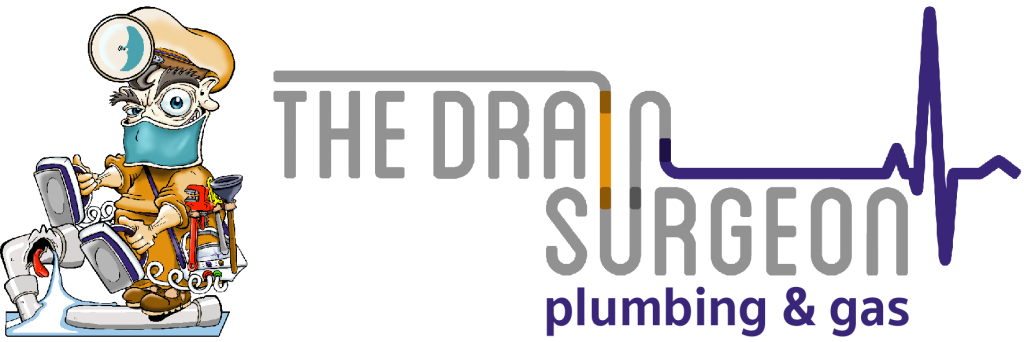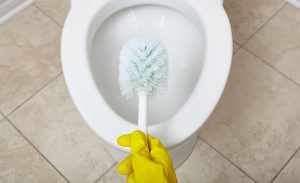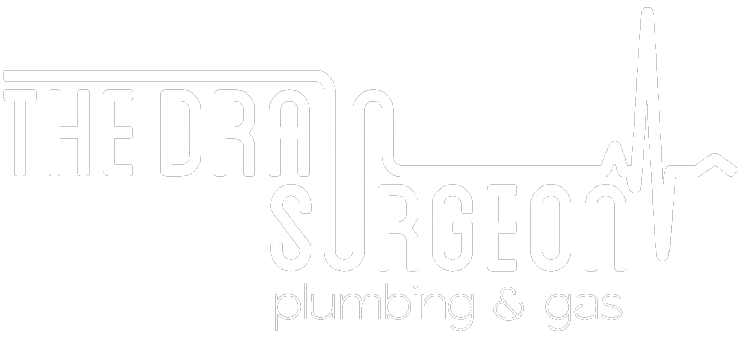You’re ready to face the day, and a refreshing shower awaits. But as you step into your bathroom, disaster strikes! An overflowing drain greets you, turning your morning routine into a watery nightmare. A DIY approach in such cases is not recommended as it can make the situation even worse. But here’s the good news: you can take quick and easy steps to address the clog before a professional blocked drain cleaner arrives for help.
This guide equips you to tackle clogged drains with confidence. We’ll walk you through identifying the cause, using safe and effective cleaning methods, and getting your bathroom back to a peaceful oasis in no time.
Understanding the Causes of a Clogged or Overflowing Drain
- Unidentified Foreign Objects Blocking the Pipe
The most common cause of an overflowing drain is the accumulation of foreign objects in the pipes. Hair, soap scum, grease, food particles, and other debris can build up, creating a blockage that prevents water from flowing freely. These materials can form a solid mass that is difficult to dislodge without the help of a drain-cleaning specialist.
- Old Pipelines
Older homes have outdated plumbing systems that are prone to blockages and overflows. Pipes made from materials like cast iron or galvanised steel can corrode and deteriorate over time, leading to reduced water flow and increased likelihood of clogs. Tree roots can infiltrate older pipes, causing significant blockages and damage.
- Location of the Drain Blockages
The location of the blockage influences the overflow severance. Blockages near drain openings might be easier to address with basic tools and techniques, while deeper blockages within the plumbing system require specialised equipment and expertise.
Immediate Steps to Take When Your Drain is Overflowing
- Turn Off the Water Supply
The first step in managing an overflowing drain is to turn off the water supply to prevent flooding. Locate the main water valve in your home and shut it off to stop water from flowing into the affected area. If the overflow is confined to a specific fixture, like a toilet or sink, you can also turn off the water supply valve for that fixture.
- Remove Standing Water
After turning off the water supply, use a wet/dry vacuum or buckets to remove any standing water from the overflow area. This will help minimise water damage and make it easier to access and clear the blockage.
- Clear Visible Blockages
Inspect the overflow area for any visible blockages. In sinks and tubs, you may find hair or soap scum clogging the drain cover. Use a pair of gloves and a drain snake or a plunger to remove as much debris as possible. This initial step can sometimes resolve minor blockages without the need for further intervention.
DIY Drain Unclogging Techniques
Minor plumbing issues can be resolved through a DIY approach. Here are some easy techniques to use:
- A plunger can create enough suction to dislodge minor clogs.
- A drain snake, also known as an auger, can reach deeper into the pipes to dislodge solid blockages.
- For grease clogs, pouring hot water mixed with dish soap down the drain can help dissolve the grease and clear the blockage.
When to Call a Plumber for an Overflowing Drain
While DIY methods can be effective for minor clogs, there are situations where a professional drain cleaning service is necessary:
- Recurring Drain Blockages
If your drains frequently clog or overflow despite your best efforts, it’s a sign of a more serious issue within your plumbing system. A drain cleaning specialist can diagnose the problem and provide a long-term solution.
- Multiple Drain Blockages
When multiple drains in your home are blocked or overflowing, it indicates a blockage in the main sewer line. This requires immediate attention from a plumbing drain service to prevent sewage backup and extensive damage.
- Specialised Tools to Diagnose
Professional plumbers have access to specialised tools and equipment, like video inspection cameras, hydro-jetting machines, and pipe locators, which can accurately identify and address complex blockages that are beyond the reach of DIY methods.
- Sewer Line Blockages
Blockages in the main sewer line are a serious issue that can cause extensive damage and health hazards. If you suspect a sewer line blockage, contact a drain plumber in Perth or your local area for a thorough inspection and repair.
Preventative Maintenance Tips
To avoid the hassle and expense of dealing with an overflowing drain, follow these preventative maintenance tips:
- Keep Drains Clear
Regularly clean your drains to prevent the buildup of hair, soap scum, grease, and other debris. Using drain screens and traps can help catch debris before it enters the pipes.
- Schedule Routine Maintenance Check
Schedule regular maintenance with local drain cleaners to inspect and clean your plumbing system. Professional drain cleaning services can help keep your pipes in optimal condition and prevent blockages from forming.
- Use an Auger to Dislodge Any Solid Blockages
An auger, or drain snake, can be used to clear out any blockages before they become serious. This tool may help remove hair and other solid debris from bathroom drains.
- Avoid Flushing Items Like Paper Towels, Sanitary Products, or Food
Educate everyone in your household about what can and cannot be flushed down the drains. Items like paper towels, sanitary products, and food scraps can cause blockages and should be disposed of in the trash.
- Conclusion
An overflowing drain can be a stressful and messy problem, but with the right knowledge and tools, you can address it effectively. By understanding the causes, taking immediate action, utilising DIY techniques, and knowing when to call in a professional drain cleaning service, you can keep your plumbing system running smoothly.
Trust the experts at The Drain Surgeon Plumbing and Gas to handle all your plumbing needs. With our professional drain cleaning services, we ensure your plumbing and drain system functions seamlessly. Contact us today at 0437 000 257 for prompt and reliable service.





homepage
9 Aug 2024Very interesting information!Perfect just what I was searching for!Blog monry